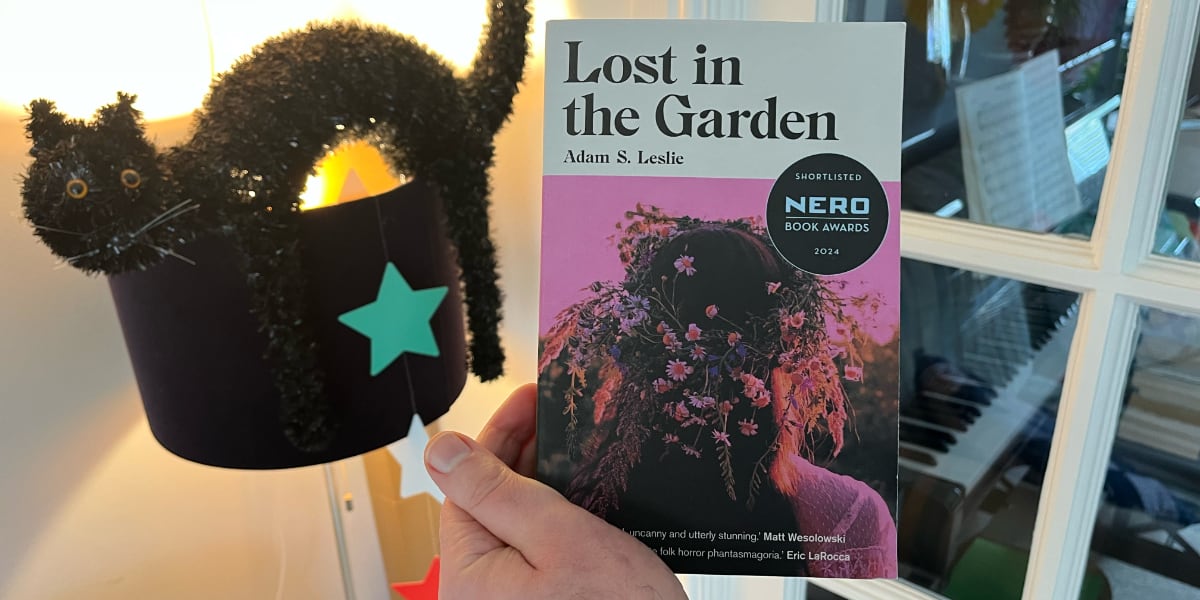
Lost in the Garden
Author: Adam S. Leslie
First published: 2024
446 pages, ~130,000 words, 72 chapters, each around 1,500 words. It’s roughly the same length as Super-Cannes! The point of view is third person limited, switching between three protagonists.
Heather, Antonia and Rachel are adults, but they live a child-like existence in a rural England that is in a forever summer, and the dead wander lost in the streets. Heather’s boyfriend Steven sets off for Almanby, a place everyone knows to never go to, vowing to return, but he doesn’t, becoming another of their friends who has disappeared. When Rachel has to take a package to Almanby, she recruits Antonia because she has a car, and Heather tags along to track down Steven. The three set off on a journey through an endless, ever-changing countryside, dodging the dead, and looking for a place that feels like the centre of all that is wrong.
The first half follows the trio as they try to find Almanby. There’s a lot of banter, some of it funny, and the three personalities bump pleasingly against each other as they navigate the increasing weirdness of the world they’re driving through. A radio station plays Steven’s voice saying nonsensical things. People from the women’s pasts keep showing up as the wandering dead. The day they leave never ends and they hardly notice. Strange images come to them when they doze. They pass empty cars on the road that seem to have just stopped working. It’s eerie, amusing and involving.
Eventually they reach Almanby, and the second half of the story goes harder into the realm of English nostalgia, squidging together memories, cultural history and folklore into a thick goop of strangeness as the women try to get to the heart of what’s happening. And pleasingly, they do find out what’s happening—I was worried several times through the book that the author was having too much fun to ever draw it properly to a close.
Nostalgia will eat you alive if you let it. The characters are content to live in the comfortable fug of their rural village well into their twenties, horsing around, watching people leave and not return. They never talk about older people still being alive, only as the walking dead. The underlying threat of evil fits with their medieval existence seen through a nineteen-seventies lens. England requires sacrifices. The countryside is not safe.
Things I liked: the descriptions of the countryside and strange goings-on were immaculate, there is a proper ending with no ambiguity that manages to not feel false, the characters were distinct and felt real.
Things I didn’t like: some of the circular conversations went on far too long, I wish it was 100 pages shorter, Heather’s repetitive mania felt out of place and pulled me out of the rhythm too many times.